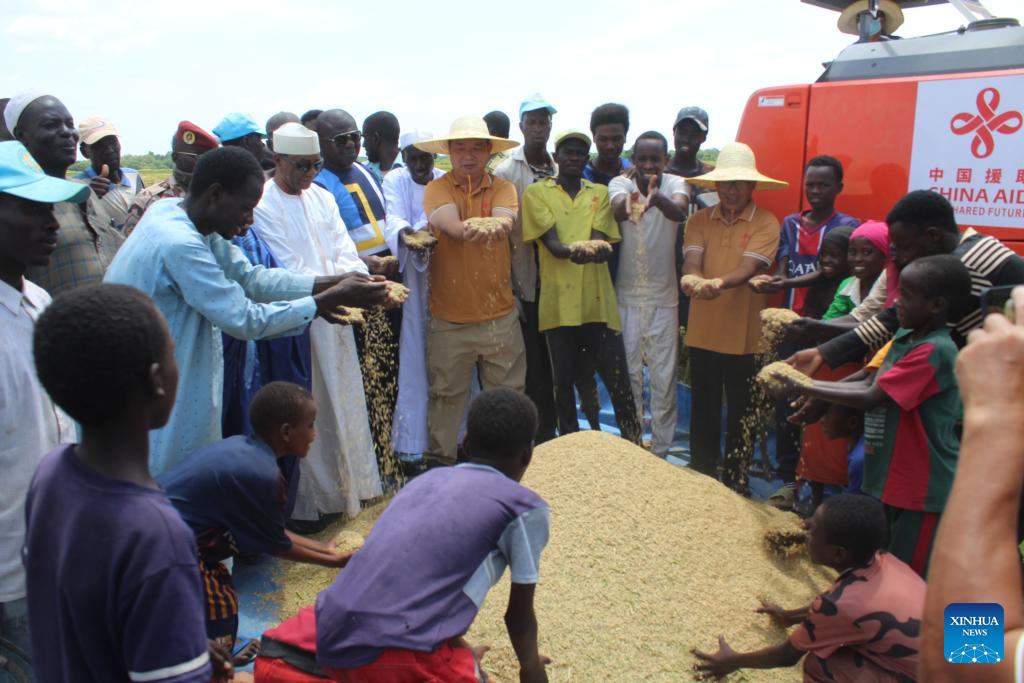Chad's Farming Prowess Grows with Chinese Expertise

The village of Midekin in Chad's Hadjer-Lamis Region looked festive. Villagers, local leaders and agricultural experts from China had gathered to celebrate a bumper harvest and the laughter of farmers mingling with the hum of harvesters reflected the cheerful and vibrant atmosphere.
Chad's major agricultural exports include sesame, gum arabic and cotton while rice is the main staple crop, crucial for food security. However, due to insufficient funds, outdated agricultural technology, and the hot and arid climate, the local rice production was consistently low for a long time. Each year, the government had to import vast quantities of rice, yet food shortages threatened the population.
In 2006, a team of Chinese experts arrived in Chad as part of China's agricultural technical assistance mission to Chad. For nearly two decades, they have cultivated farmland, constructed irrigation facilities, and introduced modern equipment such as transplanting machines and harvesters.
They have also promoted the use of high-quality rice seeds, helping Chadian farmers grow them on 600,000 hectares and trained nearly 3,000 farmers, agricultural officials and technicians.
Mahamat Ahmad Alhabo, secretary general of the Presidency of Chad, calls the high-yield rice cultivation techniques introduced by Chinese experts a breakthrough for his country.
"I am amazed by (the expertise) of our (Chinese) friends," he said. "They demonstrate that if we want to, in Chad we can produce enough rice to feed the population and contribute to a balanced diet. And what's more, we can export it for sale to generate income."
He Qiaosheng, head of the eighth group of Chinese experts, said more than 10 crop varieties have been selected, with three ready for inclusion in Chad's national seed catalog.
The Chinese varieties produce yields surpassing the local ones by over 35 percent, adding 1.2 million tonnes of food — enough to feed three million people for a year.
Technologies adapted to local conditions, combined with Chad's farming practices, have benefited both sides, He said.
China values its agricultural cooperation with Chad, the Central African country with vast land and hardworking people, he added. The partnership is based on equality and mutual benefit, with China seeking not just to provide assistance but to share knowledge, build capacity, and train local talent.







